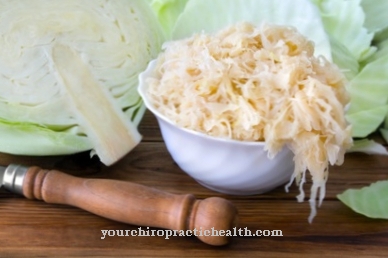Racing heart can have different causes. On the one hand there is stress, hectic pace, mental disorders that have a somatic effect and on the other hand caffeine and nicotine consumption and the consumption of stimulating drugs. The treatments for palpitations are varied and range from classic to alternative medicine to simple home remedies.
What helps against a racing heart?

Palpitations, known in specialist circles as tachycardia, are treated differently in medicine according to the age of the patient, the main cause and the severity of the disease.
In the case of severe tachycardia, which among other things can cause fainting, defibrillation is carried out. The electrical surges applied to the heart bring it back into a healthy rhythm. If the heart rate is less pronounced, drugs are given to stabilize the heartbeat. These should ensure that the body is adequately supplied with oxygen-rich blood.
A procedure called catheter ablation can also be used to switch off areas of the heart that are responsible for the heartbeat that is too fast. Catheter ablation is usually only used when drugs show no or only weak effects. Both the restoration of normal heart rhythm by means of medication and the electrical variant are summarized under the technical term cardioversion.
Both procedures are rarely used in parallel. The last remedy in classical medicine, which is used for palpitations when other drugs and electrical cardioversion do not help, is a drug called amiodarone. While this is more reliable and effective than related drugs in terms of heart disease and is less likely to cause tachycardia itself, many side effects are known.
These have a negative effect on organs such as the lungs, thyroid, eyes, stomach and intestines. It can also damage the skin and inhibit vitamin A absorption. Treatment with amiodarone must therefore always be carried out under strict medical supervision, if not even in a hospital.
Quick help
If the tachycardia has not yet been diagnosed by a general practitioner or a cardiologist, the person concerned may first need to observe them, depending on the severity of the disease. If the symptoms persist even after a long period of time, a doctor should be consulted.
But for the time being, those affected can help themselves with simple means and behavior. For example, reducing caffeine consumption or completely avoiding coffee and other caffeine-containing beverages can result in a significant improvement in heart rhythm. Smokers should also limit their vices or give up when they have a racing heart, because in addition to caffeine, nicotine is also a substance that can promote and worsen tachycardia.

Anyone who consumes cocaine should stop using it because of the risk of tachycardia, among other things. In addition, cocaine has a negative effect on the entire organism and perception. Drugs containing THC such as marijuana should also be consumed less or not at all in tachycardia. In addition to the intake of harmful substances, a harmful way of life should also be reconsidered and, if necessary, abandoned.
In this way, stress and hectic rush must be avoided in any case and the body must be adequately supplied with oxygen. This can be done by taking long walks in nature - if this is not accessible: in a park. All of these rapid measures that can inhibit or prevent an emerging tachycardia also have a prophylactic effect.
You can find your medication here
➔ Medicines to strengthen the heart and circulatory systemAlternative remedies
If you are affected by palpitations and these cannot be eliminated by changing your diet and lifestyle, or if these are not possible, there are also various home remedies and other alternative treatment methods.
For example, the leaves of the red foxglove and the herb of the spring Adonis are heart-strengthening and have a slowing effect on the heartbeat. However, these plants, which grow in temperate forests, should be used under medical or naturopathic supervision as they are poisonous.
To be on the safe side, herbal medicines that are based on the aforementioned plants should be used as they are optimally dosed. Other plants that have a positive effect on the heart are lily of the valley, oleander and other digitalis-like plants.



























